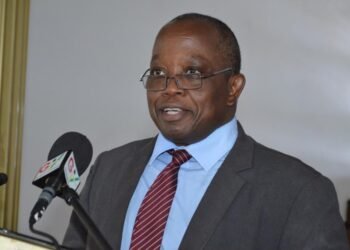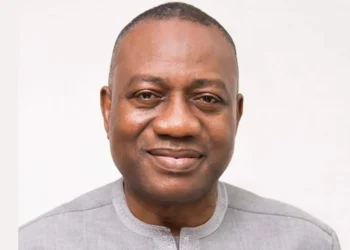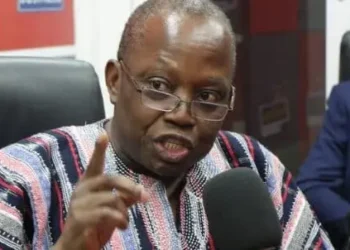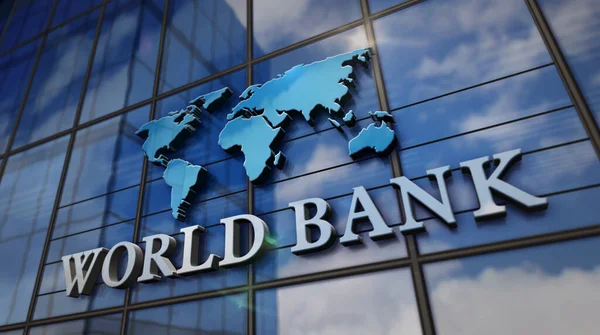Finance Minister Dr. Mohammed Amin Adam has reiterated the government’s dedication to increasing private sector involvement in the operations of the Electricity Company of Ghana (ECG).
Speaking at a media briefing, Dr. Adam outlined a series of initiatives under the Energy Sector Recovery Programme (ESRP) to stabilize ECG’s finances and improve operational efficiency, while also safeguarding the energy sector’s sustainability in the face of a massive annual shortfall of US$1.2 billion (roughly GH¢18 billion).
“This is not acceptable,” Dr. Adam stated, pointing to the sector’s financial leakage as a major barrier to national development.
“Funds that should be allocated to essential services like healthcare and education are being diverted to cover losses in a sector that should ideally attract market-based solutions.”
Finance Minister Dr. Mohammed Amin Adam
Central to the government’s strategy is implementing the cash waterfall mechanism—a financial tool designed to streamline the equitable distribution of ECG’s revenue among various stakeholders within the energy value chain.
By enhancing transparency and accountability, this mechanism aims to restore confidence among partners and investors, whom Dr. Adam acknowledged “is very important for us, because people have lost confidence in our ability to manage the energy sector due to financial issues.”
As part of the ESRP, the government is also actively renegotiating power purchase agreements (PPAs) with Independent Power Producers (IPPs). These agreements have contributed to the government’s substantial debt burden due to legacy costs, operational inefficiencies, and often-unfavorable contract terms.
While negotiations with several IPPs are ongoing, recent tensions have surfaced. One notable setback was the temporary shutdown of Sunon Asogli’s 560MW power plant, which was attributed to an unresolved payment dispute with ECG. Sunon Asogli reported an outstanding debt of US$259 million, excluding fuel costs, as the primary reason for suspending operations.
Despite this, Dr. Adam assured the public that the shutdown had no impact on the country’s overall power supply. “If one plant shuts down and the others continue to operate, it simply means that we have enough to supply our people,” he explained.
Investments in ECG’s Operational Efficiency
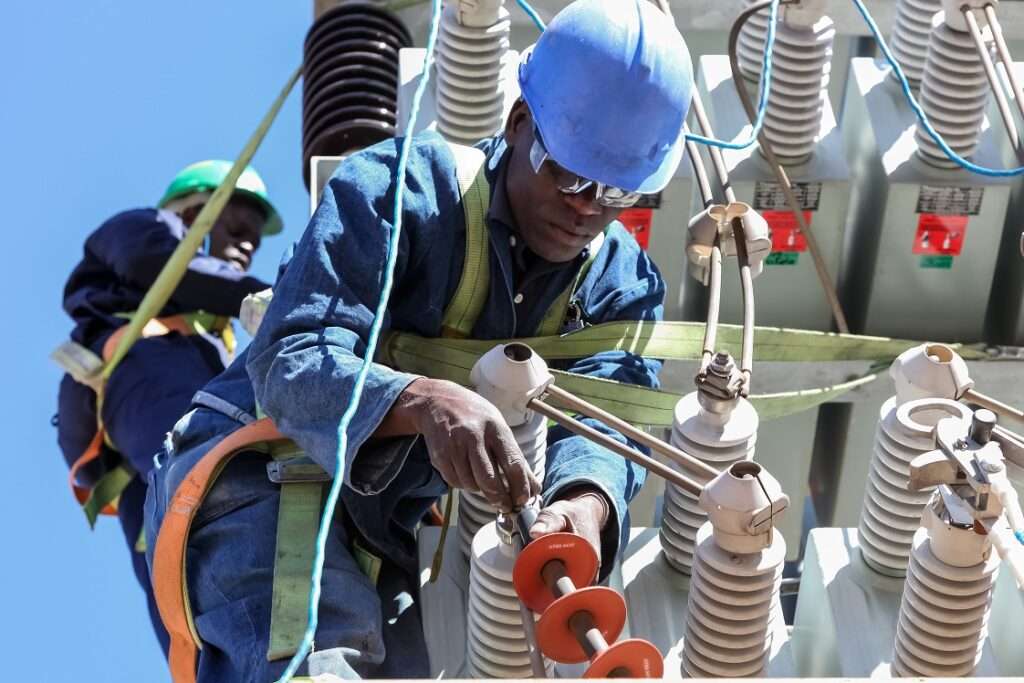
Sunon Asogli
Improving ECG’s operational efficiency remains a priority within the broader reform plan. Dr. Adam highlighted ongoing investments in prepaid metering and the enhancement of commercial management systems as pivotal steps to bolster revenue collection.
These upgrades are expected to improve customer service while simultaneously reducing operational costs and revenue losses associated with billing inefficiencies.
“Our objective is to not only stabilize the energy sector but also improve the quality of life for our citizens,” Dr. Adam noted, emphasizing the socioeconomic impact of a resilient energy sector.
The government has already made headway with two of the six IPPs involved in restructuring talks. Recently signed agreements with Cenit and AKSA do not require parliamentary approval, allowing both entities to continue operations under the revised terms without delays.
However, negotiations with Sunon Asogli have been less straightforward. “While we initially agreed to a US$30 million one-off payment, Sunon Asogli later demanded another US$30 million. This was not part of our settlement terms,” Dr. Adam asserted.
Dr. Adam noted that Sunon Asogli has shown renewed interest in finalizing the settlement, potentially paving the way for a resolution.
Another IPP, Karpowership, recently sought an additional US$70 million outside of the agreed terms—a request Dr. Adam firmly declined.
“We have to negotiate and sign before I make any payment. Ghana is not just a street-country,” he remarked, underscoring the government’s commitment to fiscal prudence amid these negotiations.
Two additional restructuring agreements with IPPs Cenpower and Amandi Energy await parliamentary approval. Dr. Adam urged parliament, currently in recess, to reconvene and ratify these critical agreements, emphasizing the importance of legislative support for the success of these reforms.
“This is one of the effects the suspension has on government business, because we were expecting parliament to approve these renegotiated agreements,” he said, calling for swift legislative action to facilitate progress.
The government’s focus on private sector involvement in ECG’s operations, coupled with strategic reforms and renegotiations, signifies a robust approach to addressing the long-standing challenges within Ghana’s energy sector.
The Finance Minister’s call for a collaborative effort from all stakeholders—government bodies, IPPs, and the private sector alike—highlights the shared responsibility in revitalizing Ghana’s energy sector to meet both current and future demands.
READ ALSO: Spain’s Flooding Tragedy Attributed To Warning System Failure


